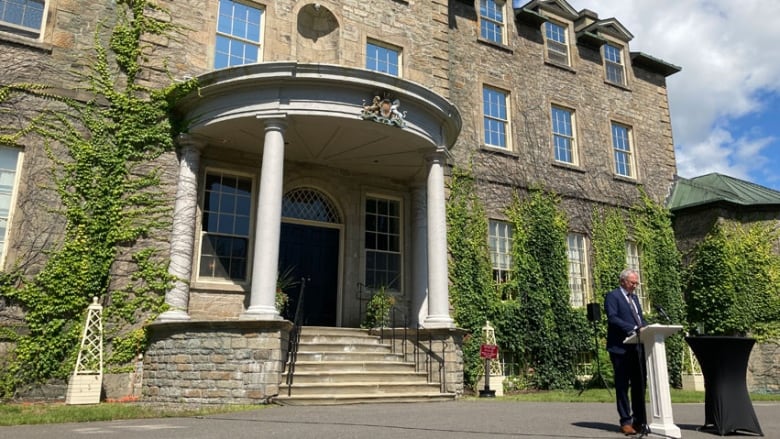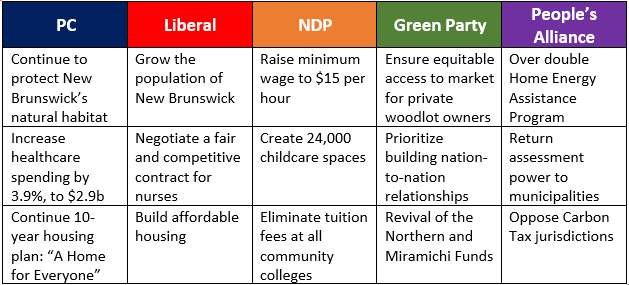Despite a call that, in normal times, would have been most notable for occurring in the height of Le Festival Acadien de Caraquet, New Brunswick’s first-in-the-nation pandemic-era election has hit its half-way point.
Amid a noticeable absence of candidates performing the usual rituals of shaking hands and knocking on doors, New Brunswickers will cast their votes in socially-distanced polling stations across 49 electoral districts on Monday, September 14th.
With just under two weeks until election day, Progressive Conservative Premier Blaine Higgs is currently projected to win a majority government. A CBC poll tracker lists the PC Party at 39.6 per cent support, ahead of Kevin Vickers and the Liberal Party at 32.3 per cent.
It is a big challenge for Vickers in his first attempt to get elected to any role. He was acclaimed as Liberal leader last April and does not hold a seat in the Legislature. Vickers is well-known across Canada for his heroic actions in October 2014 where as Sergeant-in-Arms of the House of Commons, he helped end the terrorist attack on Parliament Hill by shooting the attacker. Vickers served as Canada’s Ambassador to Ireland after leaving his role on Parliament Hill.
Twenty-five seats are required to form a majority, with the poll tracker currently projecting that Premier Higgs could win 25 to 30 seats. Should Higgs hold his lead, he will be the province’s first premier to be re-elected since his PC Party predecessor Bernard Lord in 2003.
New Brunswick has seen a rise in third-party activity, and it is resonating with voters. Over the past several election cycles, the Maritimes have seen a surge in Green party activism. This continues to bear out in the polling, the Green Party of New Brunswick is polling at 15.8 per cent. Both the Greens and the populist People’s Alliance, at 6.3 per cent, are running ahead of the provincial NDP, registering at 5.2 per cent – though polling numbers do not always translate into voting results.
Of course, elections matter and “get out the vote” (GOTV) election day ground campaigns can mean the difference between a majority or minority government.
With voter information cards set to arrive in mailboxes and advance polls scheduled to open this weekend, the next 11 days will see innovative campaigning. As Canada’s first pandemic election, candidates from all parties are taking to creative measures to connect with constituents. Fiddle players, bagpipes and virtual door knocking have all played unexpected roles as campaigns find ways to safely interact with voters.
Elections New Brunswick was prepared for an expected increase in mail-in ballot requests, and a spokesperson confirmed to the CBC that this is materializing, saying “we are seeing a noticeable number of people applying to vote by mail.”
Due to the pandemic and the province’s preparation, Elections NB is paying for return postage for those choosing to vote by mail-in ballot.
Counsel has been monitoring each political party’s campaign, with top party promises including:
The province has been heralded for its handling of COVID-19. There have only been 191 total instances in the province, with 2 deaths, 186 recoveries and only 3 active cases.
Counsel continues to monitor election activity across the country. Stay tuned for updates on Saskatchewan’s provincial and municipal elections this fall and rumours of a British Columbia provincial election and a possible federal election.


